May 25, 2015 08:15 am / Posted by Diana Joan | Categories: Blu-ray
The worlds of Hollywood, fashion and high society are vying for red-carpet supremacy on the French Riviera as the 68th Cannes International Film Festival – The 2015 Cannes Film Festival is now underway, with some of the year’s most anticipated films contending for the Palme d’Or (known at various points in the festival’s history as the Grand Prix). Always a source of controversy, the Palme d’Or has nonetheless honored throughout its history some of the most important films in world cinema. To get into the mood for this year’s festival, let’s take a look back at five great films that have won the coveted Palme d’Or, all of which are currently available to stream online and learn how to backup the Blu-ray/DVD version for these best Cannes Palme d’Or winners for freely playback.

Five Fantastic Winners of the Cannes Film Festival’s Coveted Palme d’Or
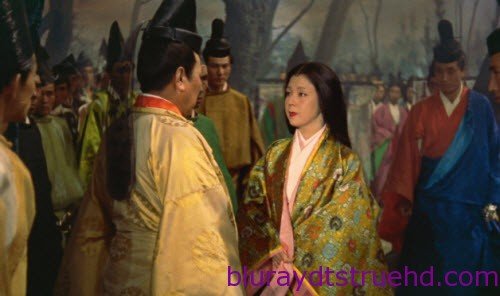
Title: Gate of Hell (Japan, 1953)
Plot: In 12th-century Japan, an ambitious samurai named Morito distinguishes himself by helping the government suppress a rebellion in which his own brother played a key role. As a rising star on the scene, Morito sets his sights on the beautiful Kesa, who is, alas, already married to another man. As the lovers conspire to kill Kesa’s husband, what unfolds is a gorgeous and ruthlessly efficient tragedy, sort of like The Postman Always Rings Twice translated to medieval Kyoto.
Historical context: Director Teinosuke Kinugasa’s Gate of Hell was one of the first color films to be shot in Japan, and its lush and vibrant color treatment of medieval Japanese period detail made it one of the most striking films at the 1953 Cannes Film Festival. It benefited from the wave of international enthusiasm for Japanese cinema initiated by Akira Kurosawa’s Rashomon (1950), which burst onto the world movie scene like a revelation. Kinugasa was one of a number of Japanese master filmmakers, including Kenji Mizoguchi and Yasujiro Ozu, who began their careers before WWII but rose to global fame in the 1950s.
Other major films at Cannes in 1953: Henri-Georges Clouzot’s The Wages of Fear, Jacques Tati’s M. Hulot’s Holiday.
Where it’s streaming: Hulu, Amazon.
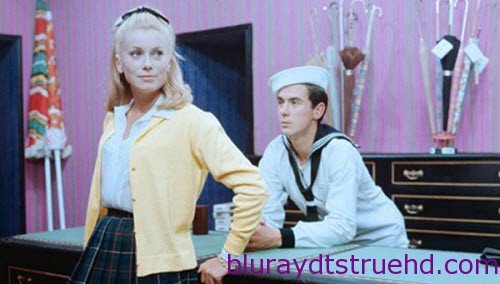
Title: The Umbrellas of Cherbourg (France, 1964)
Plot: Jacques Demy’s The Umbrellas of Cherbourg has rich colors to rival Gate of Hell, but the resemblance ends there. A young umbrella salesgirl (Catherine Deneuve in her break-out role) falls in love with an auto mechanic, but when’s he’s drafted and leaves her unexpectedly pregnant, social and parental pressures tempt her to marry the well-to-do jeweler who seeks her hand. In an homage to the classic Hollywood musicals that Demy loved, every line of dialogue in Umbrellas is sung.
Historical context: Jacques Demy gained prominence alongside French New Wavers like Jean-Luc Godard and Fran?ois Truffaut, but largely shunned the political radicalism of the former and the gritty realism of the latter. Instead, he sought to take the northern French country in which he grew up and transmute it into a fairytale world, filtered through the twin prisms of childhood mythology and Golden Age Hollywood. By the time of his premature death in 1990, Demy had elaborated a rich cinematic universe which has continued to draw in new generations of eager cinéphiles.
Other major films at Cannes in 1964: Hiroshi Teshigahara’s Woman in the Dunes, Nelson Pereira dos Santos’s Vidas Secas, Fran?ois Truffaut’s The Soft Skin.
Where it’s streaming: Hulu, Amazon.
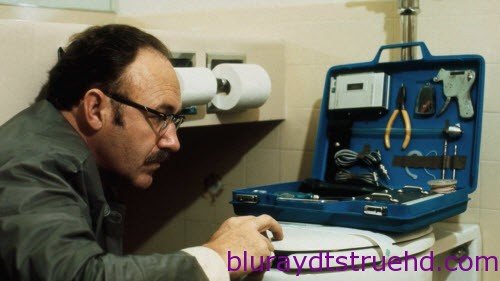
Title: The Conversation (USA, 1974)
Plot: Henry Caul (Gene Hackman in one of his best performances) runs a private surveillance company in San Francisco. A consummate professional, his policy is to take no responsibility for the use his clients make of his recordings. He becomes deeply troubled, however, by an ambiguous conversation he records between a couple walking through Union Square. Depending on how one interprets the conversation, it may be totally innocuous. Or the client, who hired Caul to spy on them, may be planning to kill them.
Historical context: Francis Ford Coppola directed this film in between the first twoGodfather films. To say he was on a streak would be an understatement. And although it is often overshadowed by the two towering films that flank it, The Conversation is indisputably one of the greatest American films of the 1970s. Arriving on the scene at the height of the Watergate investigation, The Conversation’s tale of secret audio recordings and questions of moral responsibility captured the zeitgeist, and in many ways anticipated subsequent films about what technological change does to us as human beings, fromVideodrome (1983) to The Social Network (2010).
Other major films at Cannes in 1974: Rainer Werner Fassbinder’s Ali: Fear Eats the Soul, Federico Fellini’s Amarcord.
Where it’s streaming: Netflix.
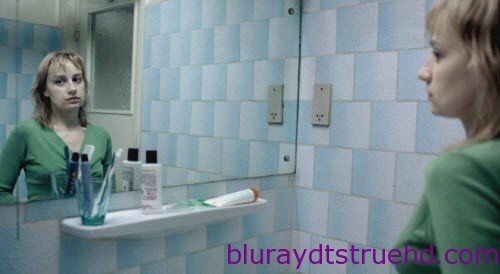
Title: 4 Months, 3 Weeks, and 2 Days (Romania, 2007)
Plot: In late 1980’s Romania, with the sclerotic Ceau?escu regime nearing its end but still very much in power, desperate college student G?bi?a is seeking out an illegal abortion (in communist Romania, there is no other variety). With the help of fellow student Otilia, they begin a harrowing descent into the Romanian underworld, in the process laying bare the rot and corruption at the heart of Ceau?escu’s dictatorship.
Historical context: When Cristian Mungiu’s blistering 4 Months, 3 Weeks, and 2 Daysdebuted at Cannes in 2007, it was riding the crest of the Romanian New Wave, which in recent years had been dominating the festival circuit with dark, socially-engaged movies like The Death of Mr. Lazarescu (2005) and 12:08 East of Bucharest (2006). And although Romanian films have been generating less enthusiasm in recent years (many critics had a muted response to the follow-ups to the above-mentioned films), the country continues to produce important works, with some perceiving in Tuesday, After Christmas(2010) and Mungiu’s Beyond the Hills (2012) to be a revival in Romania’s cinematic fortunes.
Other major films at Cannes in 2007: Aleksandr Sokurov’s Alexandra, Lee Chang-dong’s Secret Sunshine, Marjane Satrapi and Vincent Paronnaud’s Persepolis.
Where it’s streaming: Amazon.
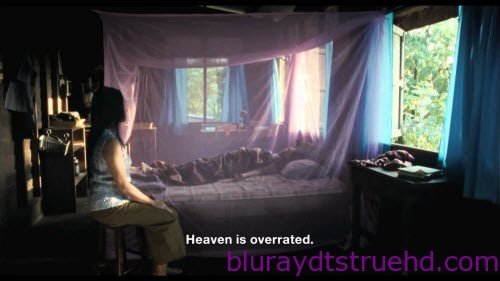
Title: Uncle Boonmee Who Can Recall His Past Lives (Thailand, 2010)
Plot: This imaginative and deeply idiosyncratic masterpiece from Apichatpong Weerasethakul presents the story of the eponymous Boonmee and his various incarnations in a corner of rural Thailand. Weerasethakul draws on a variety of cinematic methods, including the still frames of Chris Marker and the ethnographic techniques of Jean Rouch, to tell an alternately magical and heartbreaking story about recent history and the experience of modernity in Thailand. Also, there are ape-ghosts, whose surreal melancholy could only have been pulled off by a filmmaker of Weerasethakul’s sensibility.
Historical context: Awarding the Palme d’Or to Uncle Boonmee and its strange and distinctly non-European brand of filmmaking is the sort of bold decision that justifies the prize. Just as Cristian Mungiu came to represent the apotheosis of Romanian New Wave cinema, Weerasethakul has played a similar role in the Thai New Wave that began in the late ’90s. Weerasethakul’s films, leisurely excursions into the mysteries of everyday life and explorations of the way history and folklore remain alive in modern culture, have represented some of the greatest cinematic achievements of recent times. Uncle Boonmeeis his greatest work thus far.
Other major films at Cannes in 2010: Abbas Kiarostami’s Certified Copy, Lee Chang-dong’s Poetry.
Where it’s streaming: Netflix, Amazon, Fandor.Recommended Tool to Watch Films Winning Cannes Palm Award
All the above-mentioned films receiving top Palme d’Or Award are worthy of collection all through your life. So supposing you’ve got the Blu-ray and DVD version for these best Cannes Palme d’Or winners, you may surely want to copy them for lifetime saving and convert them to playable videos for playback, even with keeping multiple audio/subtitle tracks with their desired languages.
Here, Pavtube ByteCopy (Read review) is born to be these Palme d’Or awarded Blu-ray and DVD movies, capable of copying and ripping these discs to MP4, MOV, FLV, AVI, WMV, MKV, etc, ripping the Cannes Film Festival 2D or 3D Blu-ray, DVD movies to iPhone, iPad and Android for watching on the go and making 1:1 copy of my movies from physical discs to hard drive for preventing them from scratches or other damages. What’s more, Pavtube Bytecopy can saves your day due to its excellent ability of ripping Blu-rays/DVDs to MKV, MOV and MP4 with multi-track audios preserved. Simple interface but effective conversion.


Related Articles
Hot Articles & Reviews
- Top 3 DVD Movie Subtitle Editors
- Best DVD to MP4 Converter Review
- Top 5 Best Free DVD Ripper
- Top 10 Free DVD Ripper Reviews
- Top 3 DVD to MKV Rippers for MacOS Sierra
Any Product-related questions?










Leave a reply